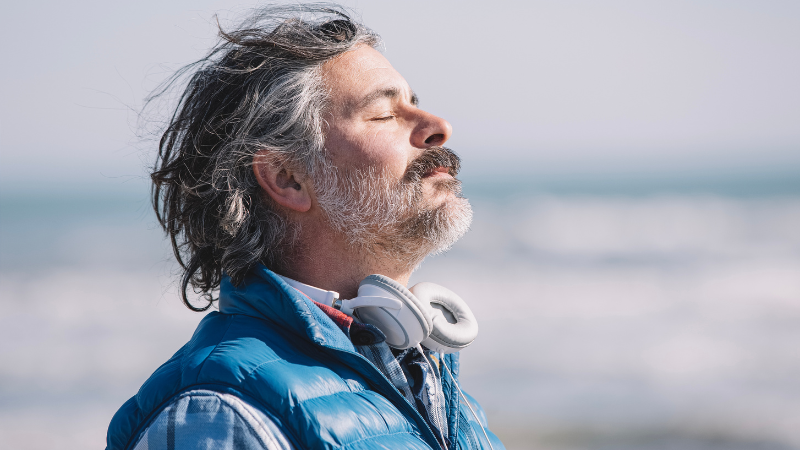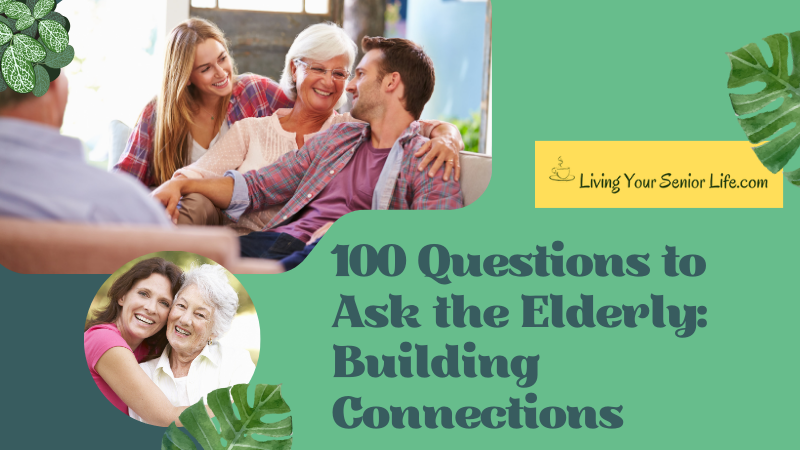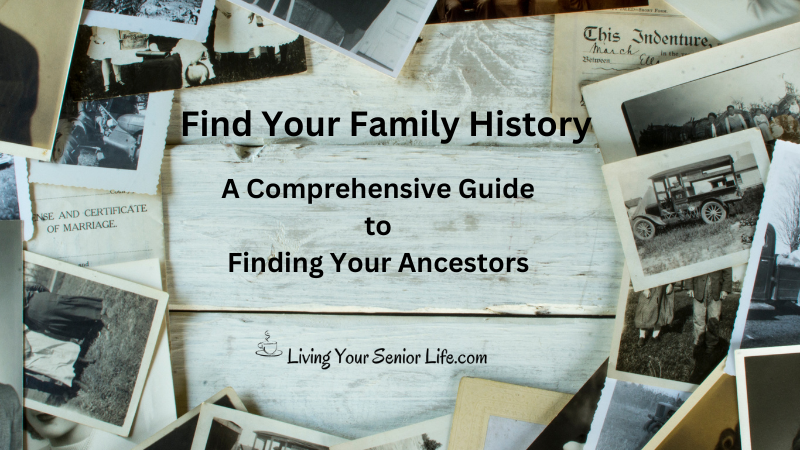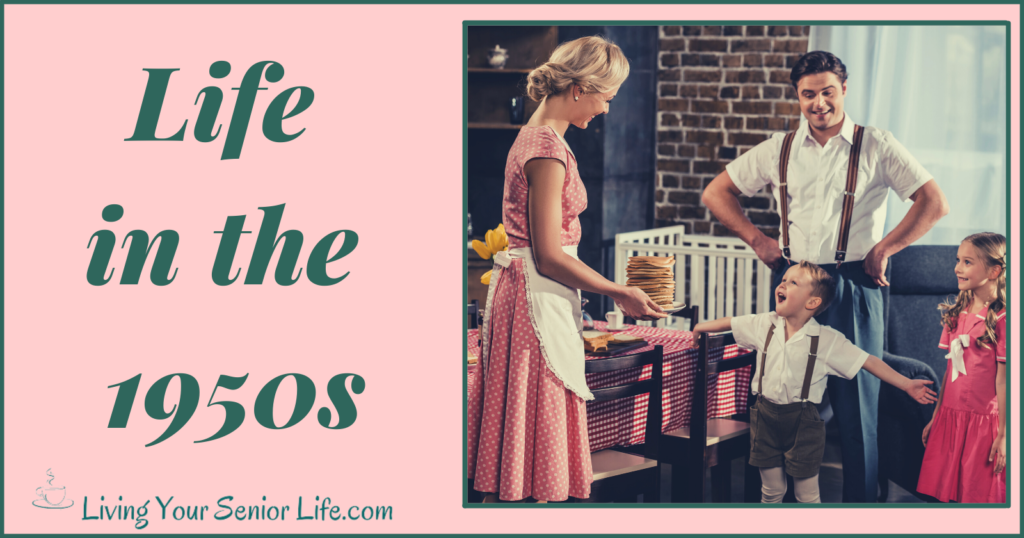Welcome to a journey of connection and understanding! In this comprehensive guide, we present “100 Questions to Ask the Elderly: Building Connections.” Communication with seniors is an art, and by posing thoughtful questions, we aim to bridge generational gaps, cherish their stories, and create lasting bonds.
Whether you’re a caregiver, family member, or simply curious about the rich tapestry of senior lives, these questions will guide you in fostering meaningful conversations.
Key Takeaways:
- Crafting meaningful conversations with older adults strengthens family connections and preserves history.
- Intentional, thoughtful questions can uncover invaluable life stories, advice, and personal insights from the elderly.
- Asking the right questions promotes emotional well-being in older people and enhances understanding across generations.
- There is a list of the 100 questions presented in this blog at the bottom.
Connecting with the Elderly

Understanding how to establish a meaningful connection with elderly family members is crucial. When communicating, select conversation starters and ask the right questions to create a bond and learn from their life experiences.
Starting Conversations
Begin by gathering unique conversation starters that resonate with the interests of the elderly. Engaging older adults with topics relevant to their experiences fosters a rich dialogue.
Here are some prompts to ignite a conversation:
- Could you share some stories about our family’s history?
- What is your earliest memory from childhood?
- What world events had a significant impact on your life?
- What does your daily routine look like these days?
- What were your favorite tv shows or songs when you were younger?
When approaching older relatives, remember that open-ended questions are a great way to encourage them to share more detailed life stories, enabling younger generations to gain new appreciation for their experiences.
Building Rapport
To build a strong rapport with aging parents or elderly people, focus on:
- Active Listening: Show genuine interest in their life stories and listen attentively.
- Respectful Inquiry: Use questions that reflect a respectful curiosity about their personal care, mental health, and daily care.
- Shared Activities: Look at old photo albums together or partake in a hobby for a more natural conversation flow.
- Common Ground: Find shared interests or experiences that can be a foundation for a deeper connection.
Avoid approaching touchy subjects too quickly, and respect personal boundaries to maintain trust. With older generations, this respectful, interested approach plays an important role in building a lasting, meaningful relationship.
Video: 100 Questions to Ask the Elderly
Understanding Their Journey

Engaging with older adults about their past can unlock a treasure trove of experiences that shape who they are today. Open-ended questions can lead to discussions about family traditions, hard times, turning points, and significant events that may otherwise remain unspoken.
By taking the time to ask about their daily routine, fond memories, life’s work, and accomplishments, you encourage a life review that not only benefits their mental health but can also be enlightening for you. The questions in this post have been crafted with sensitivity to potentially touchy subjects and health issues, and offer a variety of starting points for creating meaningful conversations with senior citizens.
Childhood Memories
Learning about an elderly person’s childhood offers a window into the formative years that shaped their identity. These times laid the groundwork for their life’s tapestry. Discover the games they played, the schools they attended, and the family members who surrounded them.
Questions about childhood can include:
- What is the first thing you remember from your childhood?
- Can you describe your family and who you spent most of your time with as a child?
- What was your house like when you were a child?
- How has the surrounding area where you grew up or have lived changed over the years?
- How did a typical day in your youth look?
- What were your favorite subjects in school and why?
- Can you share a memorable experience from your youth that still influences you today?
- What are your thoughts on the role of education in shaping a person’s life?
Life Milestones
Delving into the life milestones of elderly parents or relatives can be as enlightening for you as it is for them. It’s a chance to recognize the pivotal moments, hardships, and successes that mark their personal journey.
Some questions to ask regarding milestones include:
- What were the most significant events in your life?
- Can you tell me a funny memory from your wedding?
- Can you tell me about when you met your partner or about the day your children were born?
- What do you consider to be your biggest achievements and challenges?
- Can you talk about a time when you had to adapt to a significant change in your life?
- Can you tell me about a significant goal you achieved?
Historical Perspectives
As the times change, so do the cultures we live in. Every generation witnesses shifts in communication skills, family traditions, and cultural values. Conversations about these changes with older people are not only enlightening for younger generations but also serve as an opportunity for elderly people to reflect on their life reviews. These conversations not only honor their life stories but also create a bridge connecting future generations to their roots.
Here are the kinds of questions you can use to prompt a deep dive into the cultural transformations they’ve encountered:
- Which historical events had the most impact on you?
- What are the most important lessons you’ve learned from these historical turning points?
- Which movies, music, or TV shows from your time do you think had the most influence on society?
- How have cultural values changed from when you were a young person to what kids today may experience?
- How do you feel about the current state of the world, and what advice would you give to younger generations?
- How have advancements in technology changed the way you live?
Health and Well-Being

Engaging with elderly family members on health and well-being topics can provide insight into their overall condition and assist in their daily care. From understanding their physical health routines to delving into mental health matters and daily routines, you gain valuable perspectives on their life experiences. Family members can assist older adults by understanding personal care routines, identifying health issues, and ensuring the best care is provided.
Physical Health
Questions about Physical Health:
- How do you manage your medications, and can you describe your medication schedule?
- What kind of exercise do you find enjoyable, and how often do you participate in them?
- Are you experiencing any pain currently, and what strategies help you manage it?
- How would you rate your overall strength and balance, and do you engage in any fall prevention activities?
- Can you discuss how you maintain your hearing and vision health, and when was your last checkup for these?
Mental Health
Open-ended questions about mental health can reveal how elderly people cope with cognitive decline or chronic conditions like Alzheimer’s disease.
Questions For Exploring Mental Health
- What activities or hobbies do you feel help maintain your cognitive health?
- Can you share how you address feelings of loneliness or sadness?
- How do you believe your mental health affects your daily life?
- Are there any specific life events that significantly impacted your mental well-being?
- What are your thoughts on the services provided by elder care experts or professional caregivers, if any?
Family and Relationships

Exploring the topics of “Family Dynamics” and “Friendships and Connections” offers you a chance to engage elderly loved ones in conversations that can enhance your understanding of their life experiences and clarify the nature of long-standing relationships.
Family Dynamics
When discussing family dynamics with older adults, your aim is to understand their perspective on relationships that have shaped their lives. The conversations might lead to discussions about life review. This can be a great way for them to reflect on their family history and share fond memories. It is also an opportunity for elderly people to impart wisdom and reveal turning points that could be valuable for younger generations.
Some open-ended questions about family dynamics include:
- What was your role in the family dynamic?
- How did your role within the family change over time?
- Can you share a significant family event that brought everyone together?
- What traditions or customs from your culture or upbringing do you continue to uphold?
- What is the most important lesson you learned from your parents or siblings?
- Can you share a favorite recipe or dish that holds special meaning for you?
Friendships and Connections
When transitioning to “Friendships and Connections,” focus on the importance of social connections to mental health. It’s not unusual for older people to experience loneliness, but having a rich social life can have a positive impact on their well-being. Here, you’ll aim to gather insights into past friendships, current companionships, or even reflections on what companionship means to them through their life stages.
Questions about friendships include:
- What do you treasure the most about your longest-standing friendship?
- Tell me about a time when a friend helped you through hard times.
- How do you stay connected with friends and family who live far away?
- What qualities do you value most in a friend?
- How have your friendships changed or evolved over the years?
Use these as starting points to delve into deeper aspects of their relationships. Ask about any role they might play as a trusted friend or confidante in others’ lives. This opens the door to stories about mutual support, shared joys, and the intricate web of social ties that sustain us in our senior years. For many elderly parents, friendships are as pivotal as family connections, sometimes offering solace when they face health issues or chronic conditions.
Life’s Work and Accomplishments

When discussing the past with older adults, it’s beneficial to explore their life’s work and key accomplishments. Doing so provides insight into their personal history and the experiences that shaped them. By asking specific questions related to work and career progress you can gain a new appreciation for the lives of elderly family members.
Career Overview
First Job
Start by asking about their very first job. This can reveal the beginnings of their career journey and how the world of work looked at the time.
- What job did you first work at, and what year was it?
- How did you get your first job, and what did it entail?
Career Path
Understanding the evolution of their profession can offer valuable life lessons to younger generations.
- What has been the most rewarding part of your job or career?
- Can you describe a significant turning point or promotion in your career?
Retirement
Discussing retirement can shed light on how they transitioned from full-time work to their later years.
- At what age did you retire, and how did you feel about it?
- What advice would you give to someone approaching retirement today?
Volunteering
Older people often play a significant role in volunteering, which can have positive effects on mental health and personal care.
- Have you been involved in any volunteering or community service?
- What causes are you passionate about, and why did you choose to volunteer there?
Reflections and Wisdom

Engaging with the elderly can unearth a wealth of knowledge—insights on life’s journey and the profound impact of aging. By asking the right questions, you uncover profound life lessons and gain a broader perspective on what it means to navigate the complexities of life.
Life Lessons and Regrets
Life Lessons
Elderly people hold a library of life experiences that can serve as valuable lessons for younger generations. By discussing their most important lessons learned, you are privy to an invaluable personal legacy of wisdom that spans decades.
Consider asking specific questions that tap into these experiences, such as:
- What do you consider your most significant accomplishment?
- How has your perspective on life changed over the years?
- Could you share a moment in your life that taught you compassion?
- How has your perspective on life changed over the years?
Regrets
Regret is a natural part of reflection for many, offering a frank look at what could have been different. This can lead to powerful conversations and impart lessons that are crucial for personal growth.
Some questions to ask about regrets include:
- What would do differently in life if you had the chance?
- What piece of advice did someone give you and you ignored that you wished you had listened to?
- What opportunity did you miss that you now regret?
- Is there a decision you made in the past that you regret, and if so, what did you learn from that experience?
Insights on Aging
Discussing the aging process with older people can provide unique perspectives on growing older and the value of cherishing each moment. It might include conversations about coping with health issues or understanding the emotional aspects of aging. Ask questions that are likely to elicit a thoughtful response.
Some questions that address insight into aging include:
- What has been the most surprising aspect of getting older for you?
- What do you believe is the key to a long and fulfilling life?
- How has your perspective on life changed as you’ve grown older?
- What advice would you give to younger generations about embracing the aging process?
- In what ways have your priorities shifted as you’ve aged, and what have you discovered about yourself in the process?
Legacy and Perspective
Older generations have distinct views on what they wish to leave behind and how they want to be remembered. Elders are often eager to share their family history and the life stories that have shaped their legacy, providing a solid foundation for establishing a written document for the family legacy project.
By talking about significant world events they’ve witnessed or turning points in their lives, seniors offer a living history lesson that can significantly alter a young person’s understanding of the past and society. Recognizing the values and experiences shared by older adults through these conversations can lead to more meaningful and respectful relationships between the ages while preserving the wisdom of the past for future generations.
You might ask such questions as:
- What do you hope future generations remember about you?
- How do you feel about the legacy you’re leaving?
- What values do you hope to pass on to future generations?
- Which parts of your life would you like your family members to remember most?
Leisure and Interests

Engaging in conversations with elderly family members about their leisure activities and interests can reveal a treasure trove of life experiences and stories. By asking the right questions, you can gain insight into their favorite pastimes, books, and travel memories.
Entertainment Favorites
When discussing entertainment with older adults inquire about their favorite movies, TV shows, and books. These topics often spark fond nostalgia and can lead to meaningful exchanges.
Here are some questions in this area:
Movies
- What is your all-time favorite movie?
- Who are your top three actors or actresses?
TV Shows
- What TV show brings back good memories for you?
- Favorite comedy that always gives you a laugh?
Books
- Can you share a book that greatly impacted your life?
- What genre of books do you enjoy the most?
Travel and Vacations
Talking about travel and vacations can provide insights into an elderly parent’s hobbies and past adventures. Use these questions to explore their treasured vacations and to understand how they view different world events that may have influenced their travel experiences.
Travel
- Which place that you’ve visited holds a special place in your heart?
- Is there a trip you took that stands out as the most memorable?
Vacations
- Tell me about your favorite family vacation.
- What’s one travel adventure you’ve always wanted to take?
- Describe a place that brings you a sense of peace and contentment.
Hobbies and Interests
Delving into hobbies and pastimes can highlight personal accomplishments and memories tied to family members or significant events. By asking specific questions like these, you can help elderly people recount their happiest times and share the most important lessons they’ve learned from their diverse experiences.
- What hobbies have you enjoyed the most, and have any turned into lifelong passions?
- Tell me about a hobby or interest that has a special story or memory attached to it.
Emotional Insights

When engaging with an older adult, asking about their emotional journey through life can lead to profound insights and heartfelt stories. This section will help you find the right questions that evoke memories and reflections on both high and low emotional points.
Joy and Sorrow
Joy and sorrow are intrinsic parts of everyone’s life history, shaping our perspectives and life stories. Your elderly parent or older family members might have rich tales of happiness and challenges that reveal the intricacies of their life’s journey.
A great way to draw out these stories is through looking at old photo albums together or discussing significant world events that they lived through. These conversations can reveal how elder care experts like Dr. Robert N. Butler believe that a life review provides older people with a sense of closure and meaning.
- What are some of the happiest moments you have experienced? What made them so memorable
- Share a particularly challenging period in your life and how you overcame it.
- What small moments bring you happiness each day?
- How do you maintain a positive outlook?
Hopes and Dreams
Discussing dreams and aspirations gives older adults an opportunity to reflect on their past hopes and share advice and life lessons with younger generations. It also allows them to convey their remaining goals and what they still wish to accomplish or experience.
- What were some of your biggest dreams when you were younger, and how have they shaped your life?
- Are there any aspirations or hopes you have for the future, either for yourself or for future generations?
Looking Towards the Future

The questions in this section are designed to engage elderly individuals in discussions about their hopes for the future and how they interact with modern technology.
Future Aspirations
Asking about future aspirations can give valuable insight into the ongoing hopes and dreams of older adults. It’s a good way to understand what they look forward to, shaping conversations that are both meaningful and forward-looking. These questions can reveal a lot about the personal care needs, mental health, and general well-being of elderly individuals. They also provide a platform to discuss long-term care planning.
- What goals would you like to accomplish in the coming years?
- Is there a family tradition you wish to pass on to future generations?
- How do you envision your daily routine changing to accommodate your aspirations?
- Are there any skills or hobbies you want to learn or pick up again?
- What kind of legacy would you like to leave for your family or community?
Using Technology
Engaging with technology is increasingly important for elderly people, offering a means to connect with family members and stay informed.
- How have technological advancements changed the way you connect with your family and friends?
- What piece of modern technology do you find most useful in your daily routine?
- In terms of personal care or health issues, are there any devices or services that you find helpful or would like to try?
- What’s your take on social media and online platforms for keeping up with world events or staying in touch?
- Do you have any interest in learning more about technology to improve your daily life or health problem management?
List of 100 Questions to Ask The Elderly
| Are there any aspirations or hopes you have for the future, either for yourself or for future generations? |
| Are there any skills or hobbies you want to learn or pick up again? |
| Are there any specific life events that significantly impacted your mental well-being? |
| Are you experiencing any pain currently, and what strategies help you manage it? |
| At what age did you retire, and how did you feel about it? |
| Can you describe a significant turning point or promotion in your career? |
| Can you describe your family and who you spent most of your time with as a child? |
| Can you discuss how you maintain your hearing and vision health, and when was your last checkup for these? |
| Can you share a book that greatly impacted your life? |
| Can you share a favorite recipe or dish that holds special meaning for you? |
| Can you share a memorable experience from your youth that still influences you today? |
| Can you share a significant family event that brought everyone together? |
| Can you share how you address feelings of loneliness or sadness? |
| Can you talk about a time when you had to adapt to a significant change in your life? |
| Can you tell me a funny memory from your wedding? |
| Can you tell me about a significant goal you achieved? |
| Can you tell me about when you met your partner or about the day your children were born? |
| Could you share a moment in your life that taught you compassion? |
| Could you share some stories about our family’s history? |
| Describe a place that brings you a sense of peace and contentment. |
| Do you have any interest in learning more about technology to improve your daily life or health problem management? |
| Favorite comedy that always gives you a laugh? |
| Have you been involved in any volunteering or community service? |
| How did a typical day in your youth look? |
| How did you get your first job, and what did it entail? |
| How did your role within the family change over time? |
| How do you believe your mental health affects your daily life? |
| How do you envision your daily routine changing to accommodate your aspirations? |
| How do you feel about the current state of the world, and what advice would you give to younger generations? |
| How do you feel about the legacy you’re leaving? |
| How do you maintain a positive outlook? |
| How do you manage your medications, and can you describe your medication schedule? |
| How do you stay connected with friends and family who live far away? |
| How has the surrounding area where you grew up or have lived changed over the years? |
| How has your perspective on life changed as you’ve grown older? |
| How has your perspective on life changed over the years? |
| How has your perspective on life changed over the years? |
| How have advancements in technology changed the way you live? |
| How have cultural values changed from when you were a young person to what kids today may experience? |
| How have technological advancements changed the way you connect with your family and friends? |
| How have your friendships changed or evolved over the years? |
| How would you rate your overall strength and balance, and do you engage in any fall prevention activities? |
| In terms of personal care or health issues, are there any devices or services that you find helpful or would like to try? |
| In what ways have your priorities shifted as you’ve aged, and what have you discovered about yourself in the process? |
| Is there a decision you made in the past that you regret, and if so, what did you learn from that experience? |
| Is there a family tradition you wish to pass on to future generations? |
| Is there a trip you took that stands out as the most memorable? |
| Share a particularly challenging period in your life and how you overcame it. |
| Tell me about a hobby or interest that has a special story or memory attached to it. |
| Tell me about a time when a friend helped you through hard times. |
| Tell me about your favorite family vacation. |
| What activities or hobbies do you feel help maintain your cognitive health? |
| What advice would you give to someone approaching retirement today? |
| What advice would you give to younger generations about embracing the aging process? |
| What are some of the happiest moments you have experienced? What made them so memorable |
| What are the most important lessons you’ve learned from these historical turning points? |
| What are your thoughts on the role of education in shaping a person’s life? |
| What are your thoughts on the services provided by elder care experts or professional caregivers, if any? |
| What causes are you passionate about, and why did you choose to volunteer there? |
| What do you believe is the key to a long and fulfilling life? |
| What do you consider to be your biggest achievements and challenges? |
| What do you consider your most significant accomplishment? |
| What do you hope future generations remember about you? |
| What do you treasure the most about your longest-standing friendship? |
| What does your daily routine look like these days? |
| What genre of books do you enjoy the most? |
| What goals would you like to accomplish in the coming years? |
| What has been the most rewarding part of your job or career? |
| What has been the most surprising aspect of getting older for you? |
| What hobbies have you enjoyed the most, and have any turned into lifelong passions? |
| What is the first thing you remember from your childhood? |
| What is the most important lesson you learned from your parents or siblings? |
| What is your all-time favorite movie? |
| What is your earliest memory from childhood? |
| What job did you first work at, and what year was it? |
| What kind of legacy would you like to leave for your family or community? |
| What kinds of exercise do you find enjoyable, and how often do you participate in them? |
| What opportunity did you miss that you now regret? |
| What piece of advice did someone give you and you ignored that you wished you had listened to? |
| What piece of modern technology do you find most useful in your daily routine? |
| What qualities do you value most in a friend? |
| What small moments bring you happiness each day? |
| What traditions or customs from your culture or upbringing do you continue to uphold? |
| What TV show brings back good memories for you? |
| What values do you hope to pass on to future generations? |
| What was your house like when you were a child? |
| What was your role in the family dynamic? |
| What were some of your biggest dreams when you were younger, and how have they shaped your life? |
| What were the most significant events in your life? |
| What were your favorite subjects in school and why? |
| What were your favorite tv shows or songs when you were younger? |
| What world events had a significant impact on your life? |
| What would do differently in life if you had the chance? |
| What’s one travel adventure you’ve always wanted to take? |
| What’s your take on social media and online platforms for keeping up with world events or staying in touch? |
| Which historical events had the most impact on you? |
| Which movies, music, or TV shows from your time do you think had the most influence on society? |
| Which parts of your life would you like your family members to remember most? |
| Which place that you’ve visited holds a special place in your heart? |
| Who are your top three actors or actresses? |
Additional Reading
Conclusion
As we conclude this exploration of questions to ask the elderly, remember that each inquiry is a step towards preserving and celebrating the wealth of experiences our seniors hold. Building connections is not just about the questions; it’s about the genuine interest and respect we show. So, embark on this journey, delve into their memories, share their joys and sorrows, and weave the fabric of connections that will stand the test of time. Your commitment to understanding and appreciating their stories is a gift that transcends generations.










